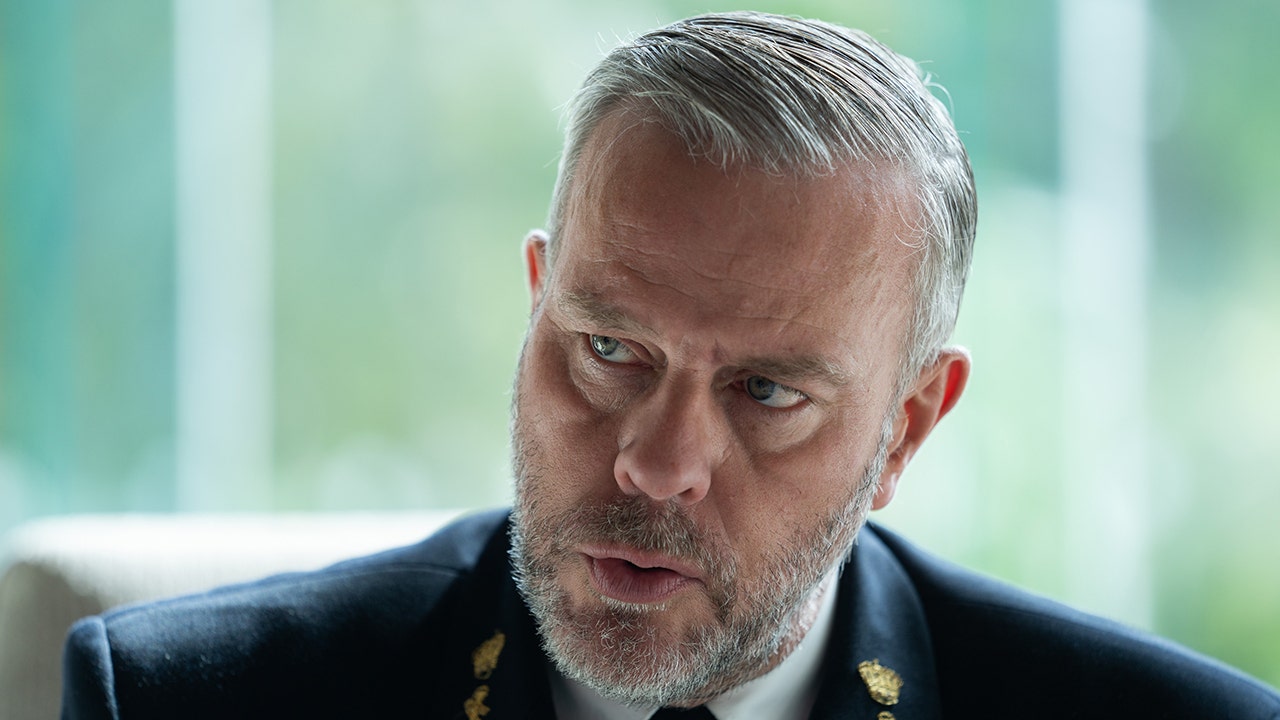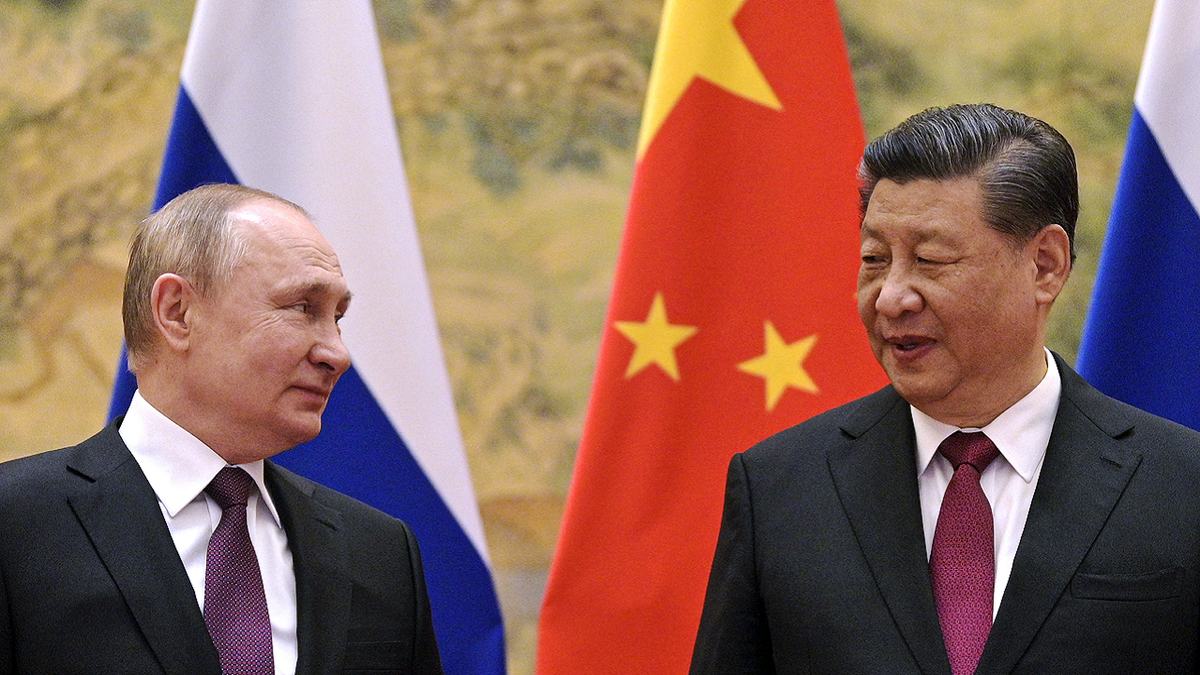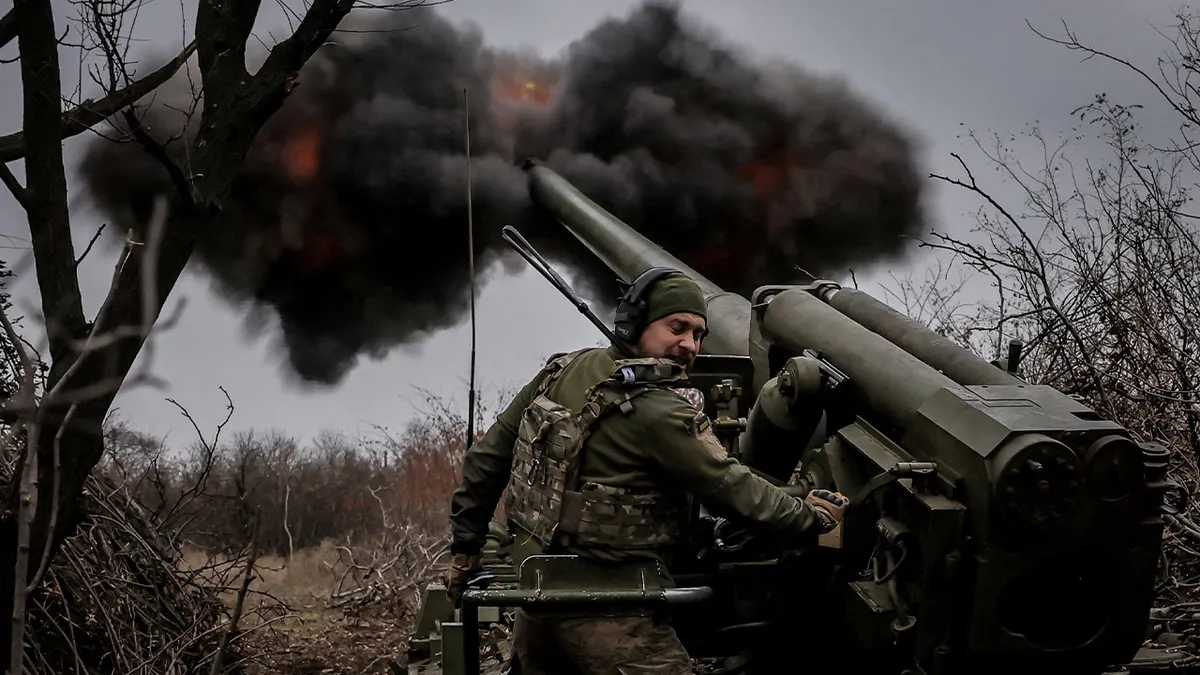- Kremlin refers questions to defence ministry
- Rumours swirl about generals after Wagner militia mutiny
- Lawmaker: Prigozhin refused to bow before defence ministry
- Prigozhin-linked plane flew out of St Petersburg
World
Kremlin gives no detail on fate of ‘General Armageddon’ Surovikin after mercenary mutiny
/cloudfront-us-east-2.images.arcpublishing.com/reuters/VVMWZHWYJVMKHG6SUAQPR5XQZA.jpg)
MOSCOW, June 29 (Reuters) – The Kremlin declined on Thursday to give any details about the fate of Russian General Sergei Surovikin, whose status and location have not been made public since an abortive armed mutiny by mercenaries on Saturday.
Nicknamed “General Armageddon” by the Russian press for his aggressive tactics in Syria’s war, Surovikin – who is a deputy commander of Russian forces in Ukraine – has been absent from view since Saturday, when he appeared in a video appealing to mercenary leader Yevgeny Prigozhin to call off his mutiny.
Surovikin had looked exhausted in that video and it was unclear if he was speaking under duress. There have since been unconfirmed reports that he is being questioned by the security services.
Kremlin spokesman Dmitry Peskov referred questions about Surovikin to the defence ministry, which has so far made no statement about him.
Asked by reporters if the Kremlin could clarify the situation with Surovikin, Peskov said: “No, unfortunately not.
“So I recommend that you contact the defence ministry; this is its prerogative.”
When a reporter asked if President Vladimir Putin still trusted Surovikin, Peskov said: “He (Putin) is the supreme commander-in-chief and he works with the defence minister and with the chief of the General Staff.”
Questions about “structural units within the ministry,” Peskov said, should be addressed to the defence ministry.
The ministry did not reply to a Reuters request for clarity on the fate of Surovikin, one of Russia’s most respected generals who previously commanded Russian forces in Ukraine for several months.
Russia’s most senior generals have dropped out of public view in the wake of the mutiny aimed at toppling the top military brass, amid a drive by Putin to reassert his authority.
The mutiny, which Putin said could have tipped Russia into civil war, amounts to the biggest challenge to the Russian state since the 1991 hardline coup attempt against Mikhail Gorbachev as the Soviet Union crumbled.
Putin, Russia’s paramount leader since 1999, thanked the army and law enforcement agencies for preventing what he said would have been devastating turmoil of the kind last seen after the 1917 Bolshevik Revolution.
PUTIN, PRIGOZHIN
The 70-year-old former KGB spy was shown on Wednesday visiting a mosque at the ancient, pre-Arab Naryn-Kala citadel in the Derbent fortress on the shores of the Caspian Sea, around 2,000 km (1,240 miles) south of Moscow.
The Kremlin said Putin also chaired a meeting about the development of tourism in the region. Putin, pictured in sunglasses and without a tie, was shown speaking to local residents who took selfies with him.
The fate of Prigozhin, who rose to become Russia’s most powerful mercenary, remains unclear.
A private jet linked to Prigozhin flew from St Petersburg, the former imperial capital of Russia, to Moscow on Thursday, though it was unclear who was on the aircraft.
The Kremlin’s Peskov said he did not have information about Prigozhin’s current location.
Belarusian President Alexander Lukashenko said this week that he had persuaded Putin not to “wipe out” Prigozhin, adding that the mercenary chief had flown to Belarus.
Speaking about the causes of the mutiny, Colonel-General Andrei Kartapolov, an influential lawmaker who chairs the lower house of parliament’s defence committee, said Prigozhin had refused to sign contracts for his mercenaries to serve under the defence ministry.
As a result, Kartapolov said, Prigozhin had been told his mercenaries would no longer fight in Ukraine and no longer receive money from the Russian state.
Putin said on Tuesday that Prigozhin, Wagner and his Concord catering company had received at least $2 billion from the Russian state over the past year.
Reporting by Reuters; Writing by Guy Faulconbridge and Alexander Marrow
Editing by Andrew Osborn, Gareth Jones and Mark Heinrich
Our Standards: The Thomson Reuters Trust Principles.

Continue Reading
World
Charles Oakley, MSG Still Sparring as Judge Weighs Dolan Testimony

A federal judge in New York last Thursday issued a mixed set of rulings in retired New York Knicks star Charles Oakley’s long-lasting litigation against Madison Square Garden Networks over Oakley’s removal from his seat at a Knicks game in February 2017. The rulings indicate that unless the parties reach a settlement, a dispute that began shortly after Donald Trump became the 45th president could last well into Trump’s term as the 47th president.
U.S. District Judge Richard J. Sullivan sided with MSG on its demand that MSG chairman James Dolan face deposition only after MSG personnel are deposed. Sullivan agreed with MSG that having Dolan go last would help to “narrow the scope” of Dolan’s deposition. The judge reasoned that MSG employees “who were directly involved in Oakley’s removal and thus have the knowledge most relevant to determining whether unreasonable force was used against Oakley” should go first.
The fact that MSG employees haven’t yet been deposed is partly a reflection of the litigation’s turbulent path. The case has been dismissed twice at the trial level but reinstated twice by the U.S. Court of Appeals for the Second Circuit, meaning it’s now in round three at the Southern District of New York. There are also disputed questions about key testimony and evidence that could further bog down the case. In the current version of the litigation, Oakley’s civil case is related to assault and battery claims stemming from his removal.
While Sullivan agreed Dolan would face deposition after MSG personnel, he sided against MSG’s request that Dolan not face deposition at all.
The judge explained that Oakley’s assault and battery claims “ultimately boil down to two considerations.” The first is the amount of force MSG staff used to remove Oakley from the Garden and, second, whether that force “was objectively reasonable under the circumstances.”
Oakley believes Dolan instructed staff to remove him. Sullivan reasoned that Dolan’s potential testimony is relevant in that he would have to answer under oath about whether he instructed—by words and/or “hand gestures”—the security guards to push Oakley and use excessive force. If Dolan gave an instruction to use force, his testimony, Sullivan wrote, “would support the reasonable inference that the guards followed Dolan’s instructions and would therefore make it more probable that the guards did in fact push him.”
Sullivan further observed that Dolan’s testimony is relevant to a key factual question: Whether the security guards “only resorted to force after Oakley physically escalated the situation.” Oakley’s case would be hampered by a finding that he instigated the altercation, since, Sullivan explained, “it might have been reasonable for the security guards to use greater force if Oakley was behaving aggressively.”
The judge was similarly unpersuaded that Dolan ought to be exempt from deposition on account of the apex-witness doctrine. As Sportico detailed in September when Sullivan rejected MSG’s earlier attempt to invoke this doctrine, high-ranking executives are sometimes exempt from depositions since they lack personal knowledge of key facts. In his latest ruling, Sullivan said Dolan “is not the prototypical apex witness who sits in the knowledge or involvement in the underlying conduct.”
Instead, Dolan literally “had a courtside seat to the action” and is accused of being involved in the incident. “The apex doctrine is plainly inapplicable here,” Sullivan insisted.
Sullivan also disagreed with MSG that Oakley is merely trying to depose Dolan to harass him. MSG cites text messages sent to Oakley from people urging the former player to go after Dolan, with one text saying Oakley should “sue the [expletive] out of Dolan.” Another text encouraged Oakley to use the discovery process to inflict a “public relations, social media, [and] social responsibility toll.” With negative attention stemming from the case, MSG might be more inclined to cut a deal. Sullivan didn’t find this evidence indicative of an intent by Oakley to harass, as there’s no evidence Oakley responded or otherwise endorsed the texts.
“We are pleased that the Court denied James Dolan’s latest attempt to avoid being deposed in this case,” Wigdor Law partner Valdi Licul, who is one of Oakley’s attorneys, told Sportico in a statement.
In September, the two sides told Sullivan their “present best estimate” was that a trial would take a couple of weeks. The judge at the time indicated there would be a post-discovery conference on March 4, 2025, though the parties’ recent disagreement about discovery suggests the case has a long way to go.
(In the next-to-last paragraph, Wigdor Law amended its original statement, replacing “to be excused from deposition in this case” to read “to avoid being deposed in this case.”)
World
Top NATO military official urges businesses to be prepared for ‘wartime scenario’

A top military official with NATO warned businesses on Monday to be ready for a wartime scenario, which could entail adjusting production and distribution lines to be less vulnerable to blackmail from Russia and China.
Dutch Admiral Rob Bauer, the chairperson of NATO’s military committee, told attendees at an event of the European Policy Center think tank in Brussels that all available instruments could be used during a time of war, according to a report from Reuters.
“If we can make sure that all crucial services and goods can be delivered no matter what, then that is a key part of our deterrence,” Bauer said.
He also said NATO is seeing a growing number of sabotage acts while Europe has seen the same when it comes to its energy supply.
UKRAINE TO ANALYZE FRAGMENTS OF MISSILE FIRED BY RUSSIA CAPABLE OF CARRYING NUCLEAR WARHEADS
Rob Bauer, chair of the military committee, warned business leaders to be prepared for a wartime scenario as tensions continue to escalate between Russia and Ukraine. (Ore Huiying/Bloomberg via Getty Images)
“We thought we had a deal with Gazprom, but we actually had a deal with Mr. Putin. And the same goes for Chinese-owned infrastructure and goods. We actually have a deal with [Chinese President] Xi [Jinping],” Bauer told the group.
The west, Bauer explained, depends on supplies from China, as 60% of all rare earth materials are produced, and 90% of those are processed there.
Also coming from China are chemical ingredients for sedatives, antibiotics, anti-inflammatories and low blood pressure medications, he further explained.
‘NEW’ RUSSIAN MISSILE USED AGAINST UKRAINE NOT HYPERSONIC, DEFENSE OFFICIALS SAY

Chinese President Xi Jinping, right, and Russian President Vladimir Putin talk to each other during their meeting in Beijing, China on Feb. 4, 2022. (Alexei Druzhinin/Sputnik/Kremlin Pool Photo via AP)
“We are naive if we think the Communist Party will never use that power,” Bauer said. “Business leaders in Europe and America need to realize that the commercial decisions they make have strategic consequences for the security of their nation.”
“Businesses need to be prepared for a wartime scenario and adjust their production and distribution lines accordingly,” he continued to stress. “Because while it may be the military who wins battles, it’s the economies that win wars.”
Bauer’s message comes as tensions between Ukraine and Russia continue to escalate.
1,000 DAYS OF WAR IN UKRAINE AS ZELENSKYY DOUBLES DOWN ON AERIAL OPTIONS WITH ATACMS, DRONES AND MISSILES

A serviceman of the 24th Mechanized brigade named after King Danylo of the Ukrainian Armed Forces fires a 2s5 “Hyacinth-s” self-propelled howitzer towards Russian troops at a front line, amid Russia’s attack on Ukraine, near the town of Chasiv Yar in Donetsk region, Ukraine November 18, 2024. (Oleg Petrasiuk/Press Service of the 24th King Danylo Separate Mechanized Brigade of the Ukrainian Armed Forces/Handout via REUTERS )
Last week, Russia launched an intermediate-range ballistic missile (IRBM) capable of carrying conventional or nuclear warheads, into Ukraine.
Ukrainian officials said the missile called Oreshnik — Russian for Hazel Tree — reached speeds of Mach 11 when it struck a factory in the city of Dnipro on Thursday.
While two U.S. officials told Fox News the missile was not hypersonic, deputy Pentagon press secretary Sabrina Singh told reporters on Thursday the attack was concerning and that it was the first time the missile had been used on the battlefield.
CLICK TO GET THE FOX NEWS APP
North Korea also sent at least 11,000 soldiers to fight in Ukraine alongside Russian soldiers, further escalating tensions.
Reuters contributed to this report.
World
Israel intensifies attacks on Lebanon but claims ceasefire deal ‘close’

Israel’s military launched air attacks across Lebanon on Monday, unleashing explosions throughout the country and killing at least a dozen people, even as officials claimed they were nearing an agreement on a ceasefire between Israel and Hezbollah.
Israeli attacks hit commercial and residential buildings in Beirut on Monday as well as in the port city of Tyre, where 12 people were killed – adding to the more than 3,700 people in Lebanon who have been killed by Israeli attacks in this two-month war.
Israeli officials said they targeted areas known as Hezbollah strongholds. They issued evacuation orders for Beirut’s southern suburbs, and attacks landed across the city, including metres from a Lebanese police base and the city’s largest public park.
Al Jazeera’s Zein Basravi, reporting from Beirut on Monday, said Israeli attacks across Lebanon in recent days were “more powerful, more destructive, more frequent and happening more often without warning – leaving people no time to get out of the way of Israeli missiles and drones”.
The barrages came as the Israeli ambassador to the United States said a ceasefire deal to end fighting between Israel and Lebanese group Hezbollah could be reached “within days”.
Ambassador Mike Herzog told Israeli Army Radio on Monday that there remain “points to finalise” and any deal requires agreement from the government. But he said, “We are close to a deal”.
Israeli officials said Prime Minister Benjamin Netanyahu’s security cabinet was set to convene on Tuesday to discuss a proposed ceasefire.
Israel’s ambassador to the United Nations, Danny Danon, said Israel would maintain an ability to strike southern Lebanon under any agreement. Lebanon has previously objected to wording that would grant Israel such a right.
The US has pushed for a deal to end over a year of hostilities between Iran-backed Hezbollah and Israel, which erupted in parallel with Israel’s war against Hamas in Gaza and has drastically escalated over the last two months.
In Beirut, Elias Bou Saab, Lebanon’s deputy parliament speaker, told the Reuters news agency there were “no serious obstacles” left to start implementing a US-proposed ceasefire with Israel, “unless Netanyahu changes his mind”.
He said the proposal would entail an Israeli military withdrawal from south Lebanon and regular Lebanese soldiers deploying in the border region, long a Hezbollah stronghold, within 60 days.
A sticking point on who would monitor compliance with the ceasefire had been resolved in the last 24 hours with an agreement to set up a five-country committee that includes France and is chaired by the US, he said.
But Bou Saab also accused Israel of ramping up its bombardment in order to pressure Lebanon to make concessions in indirect ceasefire negotiations with Hezbollah because “we are close to the hour that is decisive regarding reaching a ceasefire”.
After previous hopes for a ceasefire were dashed, US officials cautioned that negotiations were not yet complete and noted that there could be last-minute hitches that either delay or destroy an agreement.
“We have made significant progress with getting towards a resolution,” US National Security Council spokesman John Kirby told reporters. “But we are not done yet. Nothing is final until everything is final.”
The French presidency reported “significant progress” in talks on a ceasefire and urged Israel and Hezbollah to “seize this opportunity”.
One far-right member of Netanyahu’s security cabinet, National Security Minister Itamar Ben-Gvir, said he would oppose it. He said on X that a deal with Lebanon would be a “big mistake” and a “missed historic opportunity to eradicate Hezbollah”.
But hostilities continue to intensify despite the reported diplomatic progress. Over the weekend, Israel carried out powerful attacks, one of which killed at least 29 people in central Beirut, while Hezbollah unleashed one of its biggest rocket salvos yet on Sunday, firing 250 missiles into Israel.
Lebanon’s Health Ministry said Israeli attacks since October 2023 have killed 3,768 people in Lebanon and forced more than one million people from their homes.
Hezbollah strikes have killed 45 civilians in northern Israel and the Israeli-occupied Golan Heights. At least 73 Israeli soldiers have been killed in northern Israel, the Golan Heights and in combat in southern Lebanon, according to Israeli authorities.
Al Jazeera’s Basravi said that in past conflicts with Israel, there had been a surge of violence on both sides of the border, followed by a cessation.
“People are clinging to the hope that this is that moment,” he said.
-

 Business1 week ago
Business1 week agoColumn: Molly White's message for journalists going freelance — be ready for the pitfalls
-

 Science6 days ago
Science6 days agoTrump nominates Dr. Oz to head Medicare and Medicaid and help take on 'illness industrial complex'
-

 Politics1 week ago
Politics1 week agoTrump taps FCC member Brendan Carr to lead agency: 'Warrior for Free Speech'
-
/cdn.vox-cdn.com/uploads/chorus_asset/file/25739950/247386_Elon_Musk_Open_AI_CVirginia.jpg)
/cdn.vox-cdn.com/uploads/chorus_asset/file/25739950/247386_Elon_Musk_Open_AI_CVirginia.jpg) Technology1 week ago
Technology1 week agoInside Elon Musk’s messy breakup with OpenAI
-

 Lifestyle1 week ago
Lifestyle1 week agoSome in the U.S. farm industry are alarmed by Trump's embrace of RFK Jr. and tariffs
-

 World1 week ago
World1 week agoProtesters in Slovakia rally against Robert Fico’s populist government
-

 Health2 days ago
Health2 days agoHoliday gatherings can lead to stress eating: Try these 5 tips to control it
-

 News1 week ago
News1 week agoThey disagree about a lot, but these singers figure out how to stay in harmony



















